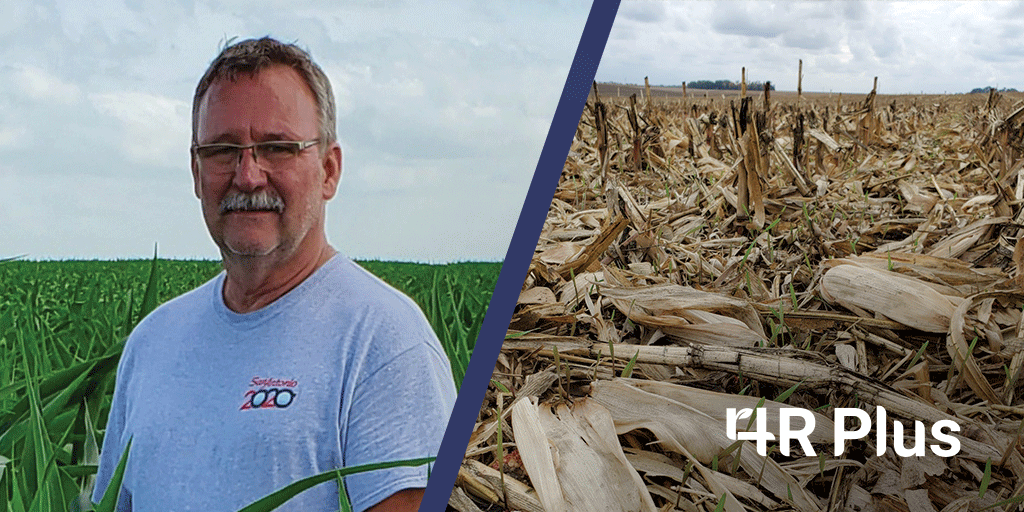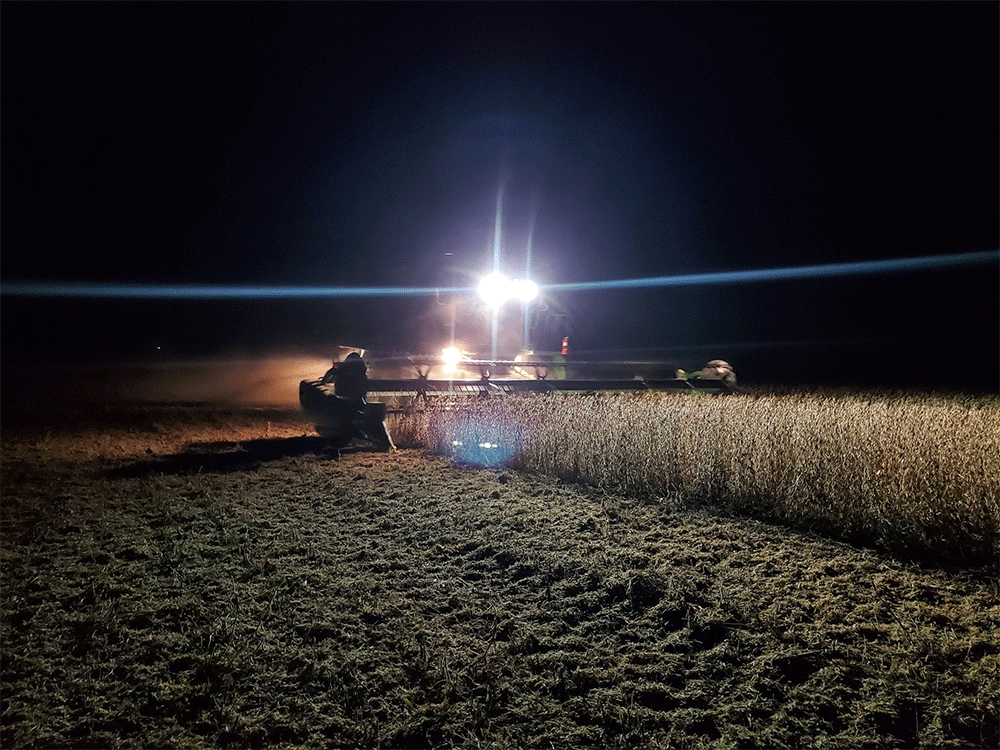
Kelly Nieuwenhuis has seen a lot of production practice changes during his nearly 40 years of farming in O’Brien County, and he’s still trying new things. He’s looking ahead to next season and trialing several different 4R Plus practices, including seeding rye cover crops into no-till soybeans and trying out new biologic technology in hopes of reducing nitrogen application.
He’s excited by his results to date and hopes to expand on these efforts to build soil organic matter and improve water infiltration. But he says decisions won’t be based on a one-year trial. “I have to prove it’s economical and beneficial to my farming operation.”
Cover crops off to an impressive start for this newbie

Rains in August and September revitalized crops. In late October with 500 acres left to go, Nieuwenhuis reported his corn crop was averaging 240 bushels per acre. Soybeans averaged 75 bushels per acre – the best beans he has ever harvested.
Plant health really shined this season, despite weather challenges, which Nieuwenhuis attributes to soil health and technology.
An early corn harvest allowed Nieuwenhuis to get his cereal rye cover crop seeded amid optimal conditions. Temperatures were in the 80s and several days after he spread the seed with a fertilizer buggy, a 2.5-inch rain fell. “I’m pretty sure every seed I threw out there grew,” Nieuwenhuis said. “It looks awesome.”
Nieuwenhuis is trialing cover crops on about 60 acres spread across two farms in hopes of improving the soil’s organic matter and water infiltration. Roughly half of each farm is no-till into cover crop. The other half of each field will be given a single pass of vertical tillage next spring. On the cover-cropped portions, some of the field was seeded at around 100 pounds an acre, which Nieuwenhuis remarked is “probably strong.” Some of it was spread at about 50 pounds an acre.
This spring, he plans to be flexible as to whether he terminates the rye before or after soybeans have been planted. But he hopes to terminate the cover crop by the time it’s 6 to 10 inches tall. He’s also making contingency plans in case he can’t acquire enough glyphosate for termination. “My backup plan is to let the rye go to seed and harvest it, sell it as seed for cover crops, and then plant an early soybean variety,” he said.
Soil testing for micronutrient management
This western Iowa farmer is currently testing soils in smaller grids to precisely target his farms’ nutrient needs. He does so every four years for each farm, but sometimes checks them sooner. “The fewer nitrates I have to apply, the better,” he said. “I don’t fall-apply nitrogen; it will be applied in the spring. I’m happy with our yields on just 130 pounds to 140 pounds of nitrogen per acre.”
He hopes to make additional strides in nitrogen reduction next season by incorporating new biologics that have shown promise by enabling plants to utilize nitrates already in the soil. With fertilizer prices soaring, he said using only as much fertilizer as necessary is more important than ever.
Nieuwenhuis has already spread some P & K and said that thanks to good soil fertility, he’s been able to reduce applications this season to save money. He’s also taking care to limit micronutrient application of sulfur, zinc and boron to just enough to benefit the crop for a year. Overapplication can result in leaching and unnecessary cost.
Get involved
As president of the Iowa Corn Promotion Board and a member of several national ethanol-focused teams, Nieuwenhuis has the opportunity to talk about agriculture and sustainability with people around the globe. He encourages other producers to get involved with commodity groups. “They get you in the doors. If you don’t have a voice, you’re out of luck.
“Getting involved in commodity groups has given me exposure to more farmers to learn about the 4R Plus practices they use and the benefits they see,” he continued. “I have gained a lot of good advice through the years that has improved my farming operation.”
Click here to ask Kelly Nieuwenhuis a question about the farming operation.
